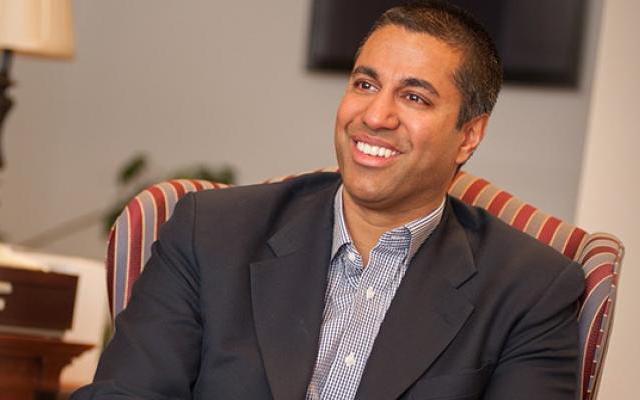
When Donald Trump assumed the presidency, he appointed a new Federal Communications Commission (FCC) chairman, Ajit Pai, who long hinted at changing how the FCC regulates the industry in ways that will impact net neutrality regulations. Back in April, Pai made his plans more official, Ars Technica reports.
First up, as Pai announced to the other FCC commissioners, would be an effort to “reverse the mistakes of Title II and return to the light-touch regulatory framework that served our nation so well during the Clinton administration, Bush administration, and the first six years of the Obama administration.” Pai referred here to Title II of the Communications Act, which in 2015 brought fixed and mobile internet service providers (ISPs) under the classification of common carriers.
Title II, therefore, extended the FCC’s full regulatory authority to ISPs, authority that it then used to impose net neutrality rules. The FCC’s previous attempts to do so were denied by a court decision that essentially said the FCC’s rules applied to common carriers but not to broadband providers.
Title II’s revocation will have other effects beyond net neutrality. For example, the ability for ISP customers and competitors to file complaints will no longer be in effect, and disputes between network operators and content providers over payments to ISPs could take longer to resolve.
Unsurprisingly, the proposed rule changes are unpopular among net neutrality proponents and Democrats, who have started planning how they will oppose the elimination of Title II and the subsequent rollback of net neutrality rules as applied to ISPs. Such opposition will come in a number of forms, such as letters from startups, investors and others to Chairman Pai and activism by the Internet Association made up of companies like Amazon, Facebook, Google, and Microsoft.
The opposition has also manifested itself in an extension of the comment period for the FCC’s proposal. Originally set at August 16, the deadline has now been pushed back by two weeks to August 30, giving the FCC more time to carefully examine the 20 million comments regarding the issue.
Hopefully, this extension will allow the FCC to see both sides of the matter more clearly, thereby “ensuring that the Commission has a complete record on which to develop its decisions,” as David Kahn from the FCC’s Wireline Competition Bureau noted. So hold on, friends — this continues to be one bumpy ride.
Update: The FCC has extended the timeline for debate around net neutrality by two weeks.


